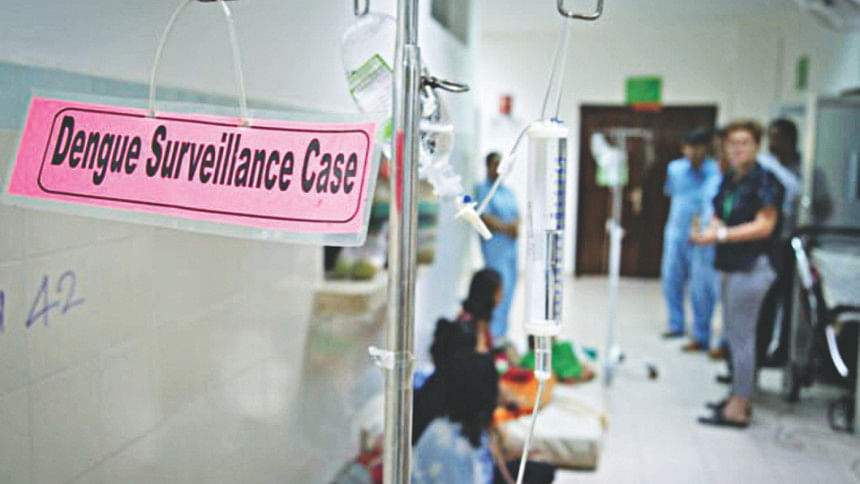Could data help us tell Dengue’s future?

2019 is one of the worst years for dengue outbreaks. Scientists and officials looking for new ways to use data to predict the deadly disease.
In the Philippines more than 622 people—most of whom are children under five years old—have died from dengue so far this year.
The country is seeing more than 5,100 new cases each week. In at least one province, tents are serving as makeshift treatment centers to deal with the crush of patients. The Philippines declared the outbreak a National Epidemic in August.
The Philippines isn't alone. In Bangladesh, the dengue outbreak is the country's worst ever.
The sheer number of dengue patients—some days there are more than 2,000 new cases in just a 24 hour period—is placing immense strain health systems. There's been a shortage of the quick-test kits that are able to detect early stages of dengue. Demand for blood and platelets is reportedly outstripping the supply at many donation centres.
In Cambodia, representatives of one hospital say the outbreak has the potential to be the worst they have seen since the hospital opened 20 years ago.
Not all dengue years are this bad. But, scientists don't fully understand why that is or, even more crucially, how to predict when and where a major outbreak is coming.
And that means that even where dengue has long been endemic, places like the Philippines, Bangladesh, and Cambodia can be caught off guard.
That's partly to do with the unique ways the dengue virus works. But it's also partly because of issues with our data collection: to predict dengue, we need better data and more of it.
Richard Maude is the head of the Epidemiology Department at Mahidol-Oxford Tropical Medicine Research Unit. His Bangkok-based team provides support to governments in Thailand, Myanmar and indirectly in the Philippines.
The team is using new approaches to account for variables that have otherwise been difficult to account for—the movement of people, for example—to develop models intended to predict future dengue outbreaks.
Maude's team took data from Thai phone users that has been scrubbed of identifying information, turned that information into matrices of how much people are moving and plugged it into a model that cross-references that data with the locations where the dengue virus has cropped up over time.
The only government Maude is aware of that's already putting predictive models to use is Singapore.
The city-state has used information from this predictive model in part to mobilize information campaigns to ramp up awareness of dengue when the data forecasts a bad year.

 For all latest news, follow The Daily Star's Google News channel.
For all latest news, follow The Daily Star's Google News channel. 



Comments